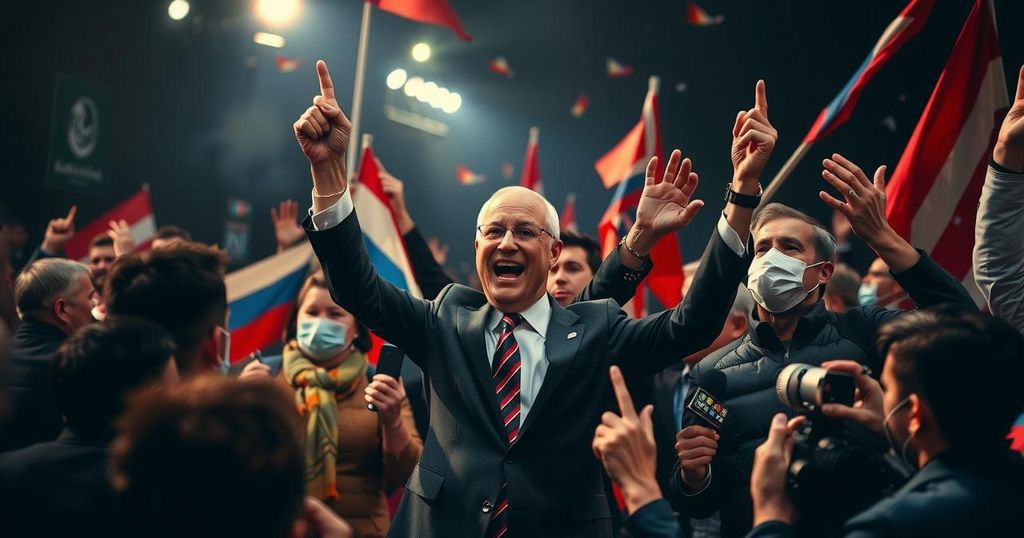Georgian Dream Secures Election Victory Amidst Opposition Protests
The Georgian Dream party has won the parliamentary elections, securing over 54% of the vote, thus maintaining control over the 150-seat parliament. However, they lack an absolute majority to amend the constitution. The opposition, labeling the elections a fraud, has initiated protests, claiming the results undermine democratic processes. Reports of violence and intimidation have surfaced, raising concerns about electoral integrity.
The Georgian governing party, Georgian Dream, has officially secured victory in the parliamentary elections, as reported by the electoral commission amidst significant protests from the opposition. With over 99% of the votes counted on Sunday, Georgian Dream achieved more than 54% of the vote, according to Chairperson Giorgi Kalandarishvili of the central election commission. Despite this success, the party fell short of an absolute majority needed to enact constitutional amendments, winning 89 out of 150 parliament seats. This election result is perceived as a setback for pro-Western factions within Georgia, who perceived the election as a crucial referendum between a ruling party that has strengthened ties with Russia and an opposition advocating for closer integration with the European Union. The opposition, encompassing four parties that garnered more than 37% of the votes, disputed the legitimacy of the elections, labeling them as fraudulent. Tina Bokuchava, the leader of the opposition United National Movement (UNM), asserted that the election results were falsified and declared unacceptable, claiming that “This is an attempt to steal Georgia’s future.” Concerns about electoral integrity were heightened by reports of violence at polling stations and allegations of voter intimidation and vote-buying. A video circulated on social media depicted questionable voting practices, escalating tensions between opposing sides. Pro-opposition President Salome Zurabishvili condemned these incidents, further emphasizing the need for an electoral examination by local and international observing bodies. Bidzina Ivanishvili, the party’s influential billionaire founder, expressed his contentment with the results, attributing the party’s notable performance—especially in rural areas—to the aptitude of the Georgian populace. He affirmed his party’s intention to guide Georgia towards EU membership, although this ambition is hindered by perceived authoritarian tendencies within Georgian Dream reported by Brussels. As the situation unfolds, the legitimacy of these electoral results and the integrity of the democratic process in Georgia remain contentious points among local and international observers, leading to the anticipation of forthcoming evaluations from various monitoring organizations.
Georgia’s electoral landscape has recently been fraught with tension, particularly as the country navigates its relationship with Russia and its aspirations for European Union integration. The latest parliamentary elections were seen as pivotal, viewed through the lens of democratic integrity and the country’s geopolitical alliances. The governing Georgian Dream party has been criticized for its alignment with Russian interests, contrasting sharply with the pro-European position of the opposition parties. With allegations of electoral malpractice and public unrest, the election results have reignited discussions about the future direction of Georgia’s political system and its democracy.
The conclusion drawn from the recent parliamentary elections in Georgia suggests a significant divide within the nation’s political landscape, reflective of its geopolitical positioning between Russia and the West. While Georgian Dream claims victory and assures its ability to govern, the opposition’s claims of voter fraud, reports of electoral violence, and calls for annulment underscore a narrative of discontent among a substantial segment of the population. It remains critical for electoral monitors to assess the situation impartially to maintain the democratic fabric of Georgia.
Original Source: www.aljazeera.com




Post Comment